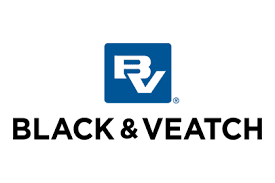Black & Veatch Takes on Innovative South African Waste-to-Energy Project

Johannesburg, South Africa/Overland Park, Kansas – Black & Veatch was selected by MBHE African Power (PTY) Ltd, a local renewable energy developer, to provide technical assistance for the country’s first waste-to-energy (WTE) plant. The energy plant will be located in the Drakenstein Municipality, near Wellington in the Western Cape.
The energy plant will contribute 10 megawatts to the nation’s power grid – enough to power more than 10,000 South African homes.
“This landmark project will play a critical role in boosting power supply and available electricity to households,” says Webb Meko, Managing Director at Black & Veatch sub-Saharan Africa.
Black & Veatch will serve as owner’s engineers to provide fuel characterisation, front-end engineering and design (FEED), and tender support for the engineering, procurement and construction (EPC), operations and maintenance contracts.
The facility will use both wet organic fraction to produce biogas and the dry fraction of locally available municipal waste (MSW) in an effort to provide clean burning natural gas energy to the Drakenstein Municipality region.
In addition to providing a renewable energy resource, the waste management project will help address limited landfill availability by diverting up to 500 tons of MSW per day from the landfill to the WTE plant, reducing the waste volume by 90 percent.
“Partnering with MBHE on this project will help address an increasingly critical waste management challenge facing the community,” says Karen Daniel, Chief Financial Officer and Executive Leader of Black & Veatch’s Sub-Saharan Africa growth initiative.
“The completed project will address this issue while also providing a sustainable energy solution to meet growing electricity demand.”
The U.S. Trade and Development Agency (USTDA) awarded MBHE a grant as joint developer in the public-private partnership that includes the Drakenstein Municipality and Interwaste (Pty) Ltd, a local South African waste management company.
The project supports Power Africa, a U.S. Government-led initiative to increase access to electricity in Sub-Saharan Africa by adding more than 30,000 megawatts of cleaner, more efficient electricity generation capacity and 60 million new home and business connections.


